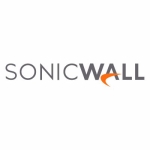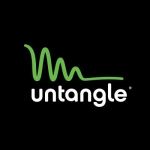We have been building local firewall systems since 2008.
The main use cases for Netgate pfSense are its exceptional stability and reputation as a premier network operating system worldwide. Millions of people are using it, and we have rolled out a new hotspot system that works from the cloud. The service is running under the pfSense portal.
Netgate pfSense impacts our organization positively because it's open source and has a free edition, which helps us significantly in building our own systems for our customers. It helps in building a new firewall system for the Turkish market. It helps us substantially.
Netgate pfSense's best features are that it's open source and flexible. We have implemented IPsec VPNs, site-to-site VPNs, and client-to-site VPNs.
We appreciate the flexibility of the Netgate pfSense solution, but we have waited approximately two years for new updates to the Community Edition. We are now moving to OPNsense.
I appreciate Netgate pfSense because we have been using it for approximately 18 years, which is a considerable amount of time. We are waiting for pfSense to integrate AdGuard, Pi-hole, or Zenarmor directly into the pfSense kernel. When I install packages, such as Snort or OpenVPN client export tool, I need to install AdGuard or Zenarmor because it's very challenging to ban TikTok, YouTube, or social media for our customers. In the early days, we managed this using SquidGuard, but since the blacklist has changed, we are struggling. There are many other blacklists I have tried, but I couldn't make them work. It has to be much easier for engineers to implement this. It's easy to integrate AdGuard into OPNsense; it becomes a function under the firewall. You can easily switch blacklists on and off, and create custom blacklists to block all social media with a toggle. We would appreciate such facilities in pfSense as otherwise, we have to manually enter all the websites, DNS resolver, and DNS overrides. Writing numerous rules on the LAN side during installation takes considerable time.
We have been using Netgate pfSense since 2008.
Netgate pfSense is a stable solution for me.
It's a scalable solution. Two months ago, I purchased a brand new server edition, a Lenovo ThinkSystem server with 128 GB RAM. I installed this pfSense server in a data center, and it's working fine. Many people connect via VPN; three or four sites are connecting site-to-site, and we also established another IPsec connection to one of the biggest ISPs in Turkey. It's working great now.
We have never asked for technical support from Netgate. We rely on the resources on the web for information.
Two months ago, we switched to OPNsense, and we are now studying OPNsense. We made a strong decision to switch to OPNsense because of the large solutions. There are many facilities, such as AdGuard and Zenarmor, which can be easily installed under OPNsense. We are studying OPNsense, and we will likely switch to OPNsense in 2025 because we are still waiting for a stable version of pfSense. 2.7.2 is very old, and we have switched to the 2.8 beta version, but we are still making our tests now.
Since we have been using pfSense for almost 18 years, we have learned extensively about Netgate pfSense. We have worked extensively and watched many educational videos from the United States, and we have made ourselves ready for pfSense. If one understands the system, it's easy to handle, but without knowledge, it's very challenging for everybody. Many people try to work with pfSense in Turkey with the free edition, the Community Edition, but they couldn't succeed because it's a complex system. It's a vast ocean, and understanding every protocol is necessary. Basically, all firewall systems are the same. Brands such as Cisco, FortiGate, and Sophos sell well in Turkey, and we are competing with these companies. Our target market is the small market, not the big companies or holdings, especially in the hospitality sector, where we deal with hotels and motels.
We would appreciate seeing facilities similar to OPNsense for Community Edition. In Turkey, people generally don't want to pay for yearly subscriptions to firewall systems. We barely recouped our investment for our Safe Hotspot system in Turkey. Competing with other brands such as Sophos, FortiGate, and Cisco is challenging. These brands also require annual payments, and due to Turkey's economic conditions, everyone is eliminating such costs. We have produced our hardware for pfSense, but it was not Netgate; it was only pfSense in the early days. We made our own rack mount 5 or 8 port firewall systems in Turkey and sold many.
The initial setup of Netgate pfSense is not complex; it's very easy. I can even have one of our resellers burn a pfSense USB stick and install pfSense without knowing anything about it.
Because the Community edition is free, we only charge for our services to the customers. In Turkey, we cannot demand normal pricing; if we were in Europe or the United States, we might collect more money from customers. The conditions in Turkey are very challenging, and collecting payment is difficult. We often charge half or one-third of the price compared to Europe.
We would like to buy Netgate hardware, but when I checked its price in Europe, it seemed expensive.
I would rate Netgate pfSense a 10 out of 10.














